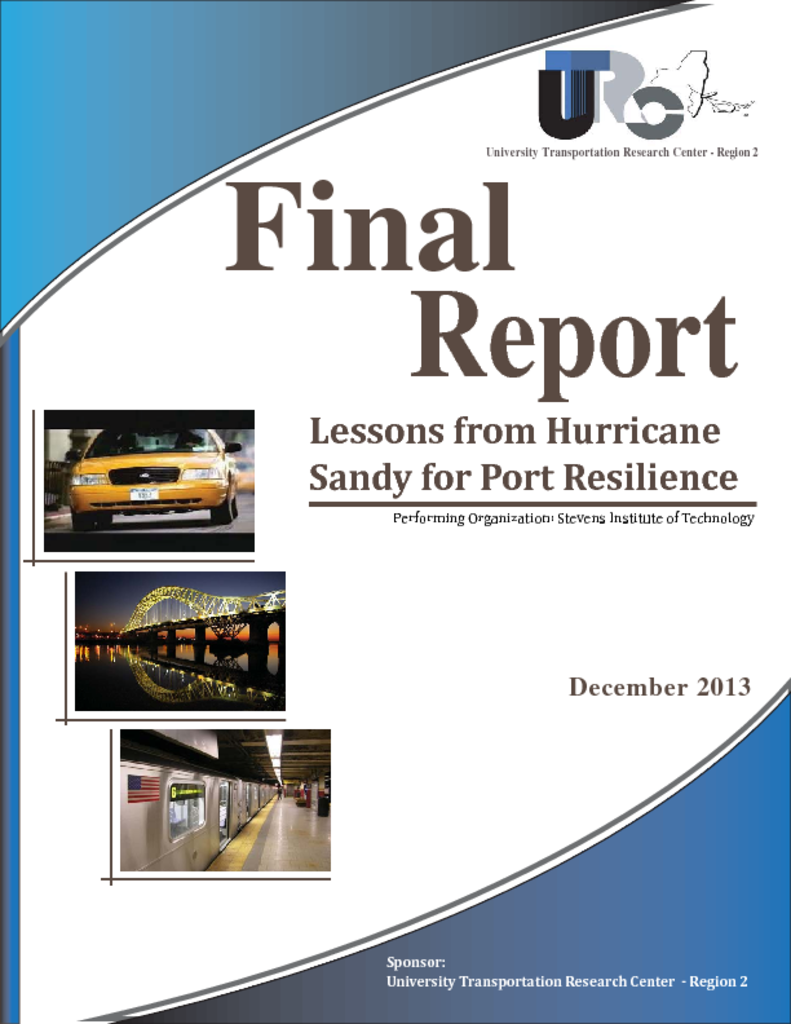New York Harbor was directly in the path of the most damaging part of Hurricane Sandy causing significant impact on many of the facilities of the Port of New York and New Jersey. The U.S. Coast Guard closed the entire Port to all traffic before the storm hit on October 28th. It was not fully reopened to vessel traffic until November 4th. Then, even though the waterways were open, numerous port terminals and maritime facilities did not resume their operations for several more weeks because of power failures and damages to the facilities and equipment. This study was conducted to identify lessons learned that could assist in restoring the Port and its contributions to the supply chain to service more rapidly in the future. The study used interviews of key port stakeholders to gather information, to understand events, and to identify the circumstances that led to the Port’s storm-related impacts and operational recovery. The project reviewed the existing design codes for infrastructure and attempted to identify how building codes could be improved. It also examine the activities and processes that enhanced port resiliency. There were several generalized principles that emerged from the interviews. They included: (1) Safety of life is the prime consideration. (2) Make plans before hand to provide leadership across organizations with strong and redundant communication systems between the leadership team and the staff. (3) The current designs and procedures must be re-evaluated given the frequency of storms. (4) Conduct drills and tabletop exercises. Most of the major damage within the port was related to the inundation associated with the storm surge plus a high tide. Storms capable of having similar impacts will occur in the future. The following building code recommendations are suggested: (1) The building codes of New York and New Jersey should be updated to include port specific sections that are uniform for the entire harbor region. (2) Specifically the states should adopt ASCE 24 for siting of critical utility and mechanical equipment and directly reference it for flood resistant design for all port facilities. (3) The Port Authority should add a section to their lease agreements devoted to port specific structural considerations. (4) The facility owners in the Port of New York and New Jersey should adopt a reasonable and consistent methodology for incorporating sea level rise into their facility upgrades. Merging resiliency principles from the literature and the descriptions by stakeholders, a simple stepwise process was formulated for enhancing port resiliency. There are activities that can take place prior to a disruption (i.e., pre-event) or they can take place following the occurrence of an incident (post-event).




